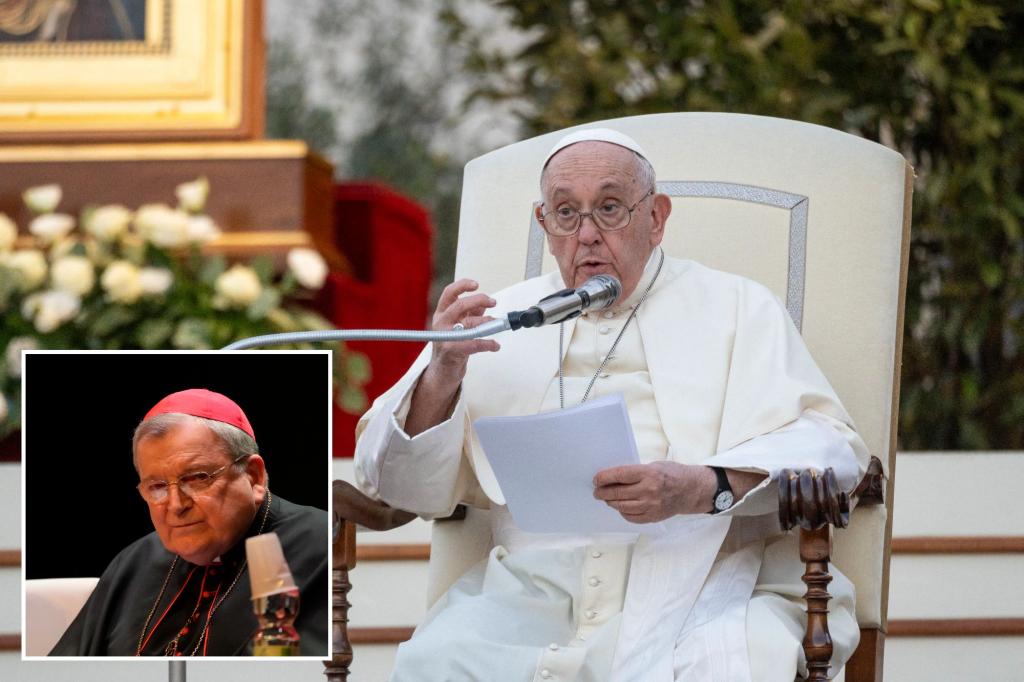A group of cardinals is concerned about the development of Catholic doctrine ahead of the next Synod on Synodality.
Cardinals Raymond Burke, Walter Brandmüller, Joseph Zen Ze-kiun, Juan Sandoval Íñiguez and Robert Sarah presented a series of dubia, formal requests to the Pope and the Dicastery for the Doctrine of the Faith in July to clarify the doctrine.
The dubia requested clarification on five specific issues that the cardinals believe have lacked clarity from the Holy See: the inability to reinterpret divine revelation, the inadmissibility of blessings for same-sex couples, the hierarchical authority of bishops, the ordination of women to the priesthood and the need for repentance for sacramental absolution.
Questions are usually answered with simple yes or no answers, but Pope Francis answered the list of topics at length that same month.
The response was originally sent to the cardinals in August in the pope’s native Spanish language.
The Vatican released the answers to the public on Monday.
But before those answers were made public, the group of cardinals, dissatisfied with the Pope’s lengthy answers, resubmitted dubia for simple affirmative or negative answers the same month.
After not receiving the desired yes or no answers after the second presentation, the cardinals published the reformed set of questions in several languages for lay Catholics.
“Brothers and sisters in Christ, we have expressed our deepest concern to the Roman Pontiff,” said Cardinal Burke, one of America’s most prominent Catholic prelates.
The cardinals asked for more definitive yes or no answers from Pope Francis. Stefano Costantino / MEGA
The media and activists have latched onto the Pope’s extensive responses to the dubia, seeking to extract information about the pontiff’s ideology and ecclesial goals.
Many media outlets incorrectly reported that Pope Francis condoned the idea of gay marriage in the church in his response.
The pontiff followed the doctrinal line of the church, stating that “marriage” is a different institution than that of a man and a woman receiving the sacrament of marriage.
“The Church has a very clear conception of marriage: an exclusive, stable and indissoluble union between a man and a woman, naturally open to the generation of children. She calls this union “marriage.” Other forms of union only do so ‘in a partial and analogous way’ and therefore cannot be strictly called ‘marriage,’” Pope Francis wrote.
 Cardinal Burke, co-signer, told the public that the cardinals have shared their “deepest concern” with the Roman Pontiff.AP
Cardinal Burke, co-signer, told the public that the cardinals have shared their “deepest concern” with the Roman Pontiff.AP
“This is not a mere question of names, but the reality that what we call marriage has a unique essential constitution that requires an exclusive name, not applicable to other realities. Without a doubt it is much more than a mere ‘ideal’.”
However, the Pope left the question of extramarital blessings between two people open for debate.
“Pastoral prudence must adequately discern whether there are forms of blessing, requested by one or more people, that do not convey an erroneous conception of marriage,” he stated. “Because when you ask for a blessing you are expressing a request for help from God, a plea to be able to live better, a trust in a Father who can help us live better.”
Pope Francis has been accused of intentionally spreading ambiguity ahead of this week’s 16th Ordinary General Assembly of the Synod of Bishops, which will bring together cardinals, bishops, priests, religious brothers, nuns and lay people from around the world in October to discuss the Catholic Church. today and how best to move forward as a global community.
Sections of conservative Catholics have expressed deep distrust in the implications of the synod, fearing that the inclusion of non-clerics in the discussion risks “democratizing” the Church.
Following this month’s discussion, the meeting will reconvene a year later, in October 2024, to draft a final document of suggestions on church governance for the Pope’s consideration. The meeting has no binding authority.
Pope Francis has said that the Synod should not be characterized as a “parliament to demand rights.” Instead, he called it “a journey according to the Spirit.”
“The Pope has said it again and again in the run-up to the Synod: that the Synod is not a parliament, nor a democratic process. We will not vote on doctrine,” Bishop Robert Barron told Fox News Digital in July.
“It’s much more about strategy,” the bishop added. “I think a lot of people, at least in the West, feel alienated from the church for different reasons. And are there better strategies we can adopt to reach them and re-engage them, etc.? I think that’s what we’ll be talking about. So I’ll take the Pope at his word. “I don’t think we’re discussing doctrine.”
Categories: Trending
Source: vtt.edu.vn
